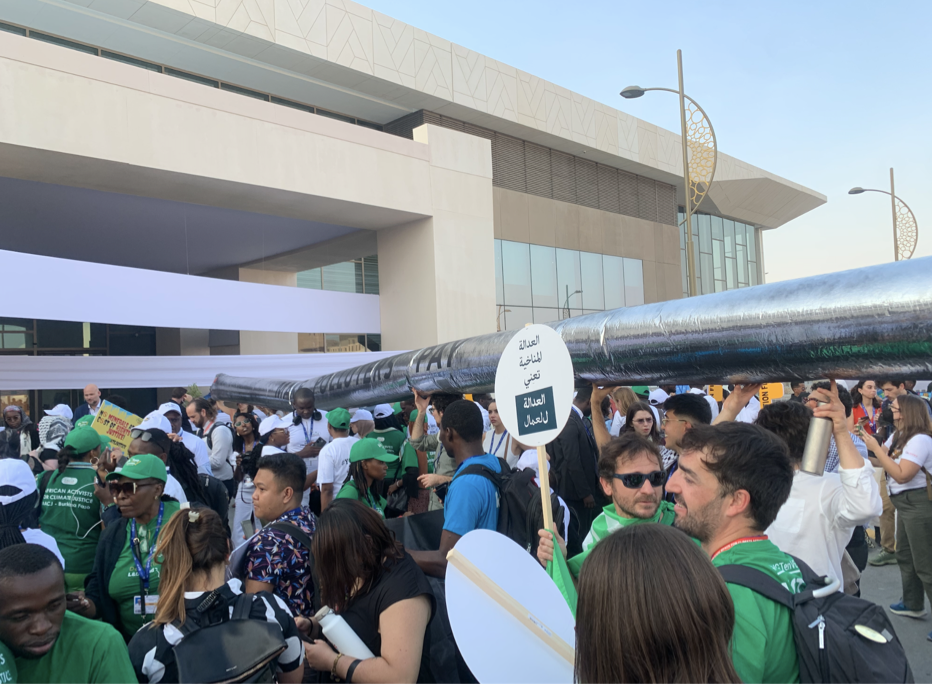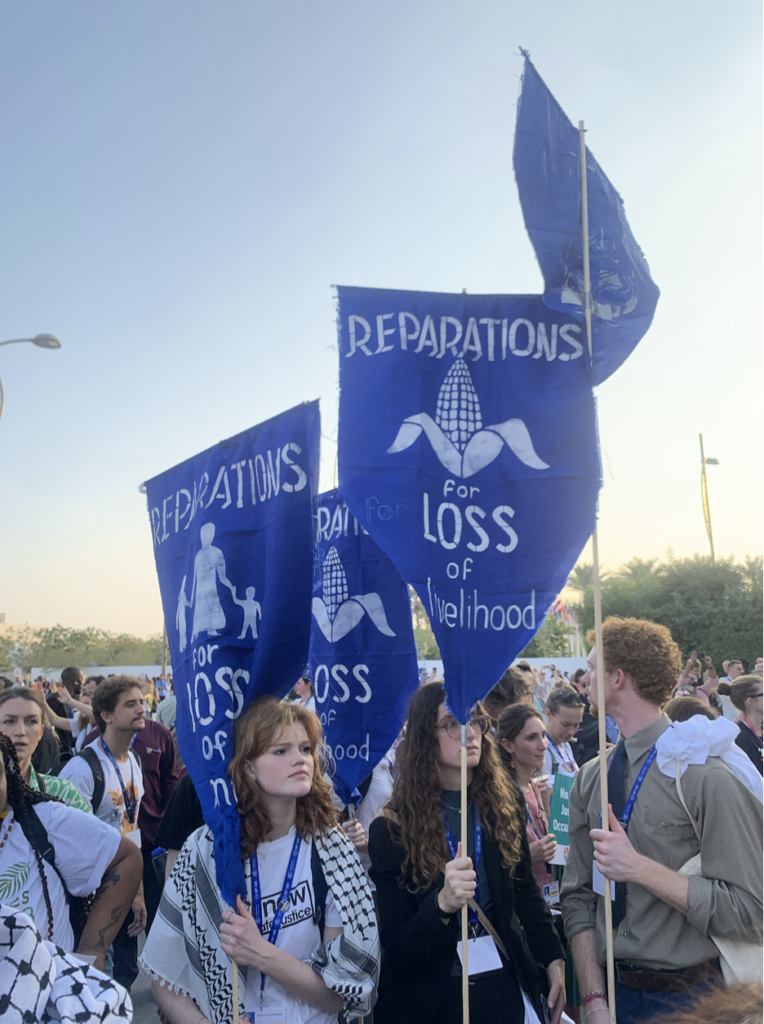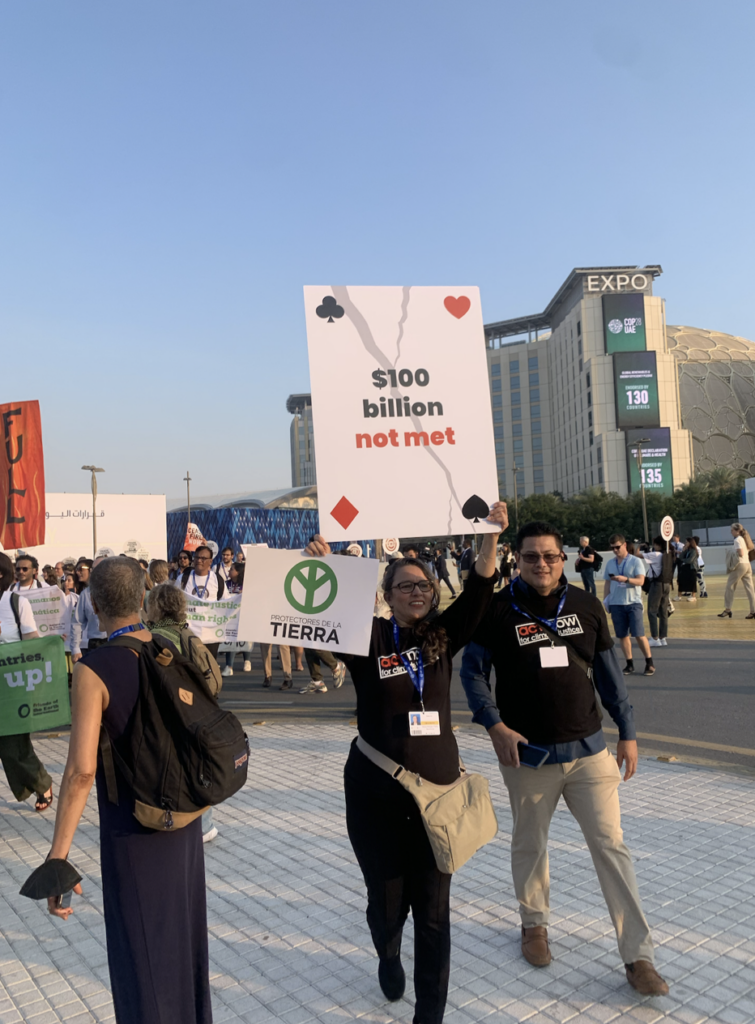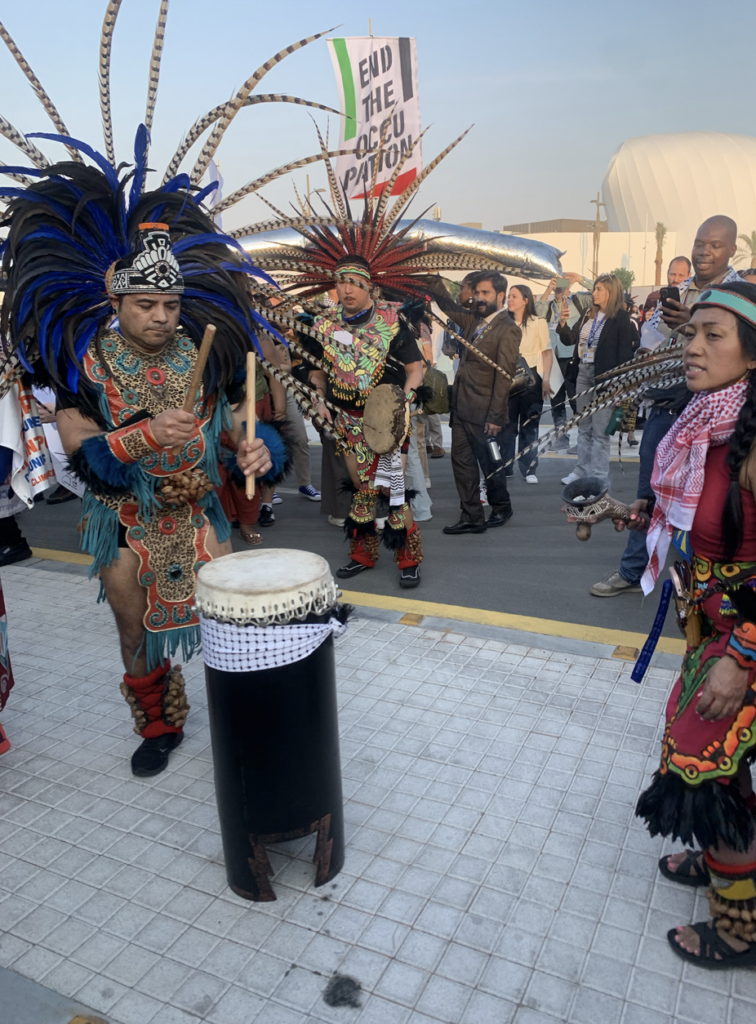
Anna Shah

Anna Shah
Swimming through a sea of posters, people, and protest, it was hard not to feel like we were drowning. Our hopes for the future sank as we read a draft text earlier that was vague, non-comprehensive and unjust. I was at my first protest, attending the UN’s annual climate change conference, COP28, in the United Arab Emirates. The experience changed my perspective. It taught me something new about life at home in the U.S. capital.

In Washington D.C., protests are part of our everyday life. We see them when we walk down the street (the White House is only four blocks away from where I go to school at George Washington University) and we partake in them to defend our rights as American citizens. Our first amendment right to assemble is what gives us hope in our country’s ability to change and grow. In my time at university, the National Mall has been peppered in pink as women filled the streets to fight for the right to have an abortion. Many of them were my peers and friends.
The freedom to protest is often explored by Americans for the first time in college. All across the country, you can find students protesting on their campus on a plethora of issues. Gun violence, racism, anti-semetism, to name just a few. Our values develop, faraway from our hometown bubbles; we are educated on the issues, from multiple points of view; and we have an air of idealism, feeling that we can shape the world we want to inherit.
I, however, had never attended a protest before. I fought for my beliefs through business, founding a company to create the change in the fashion industry that I wanted to see in the world. I used to think protests were ineffective because I didn’t think that powerful people would listen to what protestors had to say. I was wrong and I learned this while attending COP28 in Dubai and joining my first protest.

During our final days of the conference, members of the GW delegation and I were walking across the COP28 campus when we heard drums, chants, and song. People from around the world came together to fight for their shared future. We were drawn in and soon found ourselves in the middle of a protest. At first, I was overwhelmed, surrounded by a cacophony of angry, disappointed, and anxious protestors. I am not one for large crowds.
Then, I listened. And suddenly emotions overcame me. People were on the streets protesting because they had tried everything else without avail. People were protesting because they wanted to be heard, they were furious. People were protesting to share their experiences with others, forming a community. I was deeply moved. I danced to the beat of the drum, sang with the
Indigenous groups, and raised my fist to the sky to fight for our future. I hugged people in the crowd. I felt part of something and I felt powerful.

And we were powerful. The day after that protest, the COP28 draft text had changed completely, and for the better. The new language was our first footstep away from fossil fuels. I was, and am still in awe. Even still, this protest was not the same as what you would experience here in the States. Remember, we were in the U.A.E. The protests had to be scheduled, the boundaries were fenced in, spontaneity was stolen. I recognized then what an immense privilege we have as Americans to take to the streets when we have something to say.
Within the context of the UN climate change conference, which was taking place in an authoritarian country, we could have some power, but only some. However, exerting pressure is important. The UN is working to include more voices in the negotiations, including those who traditionally are not at the table. The UAE is also evolving. Without external pressure, the people who benefit from the status quo would have little reason to open up closed processes.
One month later writing this article, I still think about how that protest changed me. I felt empowered in my own voice. I felt the voices of the voiceless empowered around me. We changed history. It was incredibly exciting. I also feel immense gratitude for the freedoms we have here in the United States, a place where we can bring our full uninhibited self to a protest. Protest has power and I am lucky to live in a place where every citizen gets to be powerful.